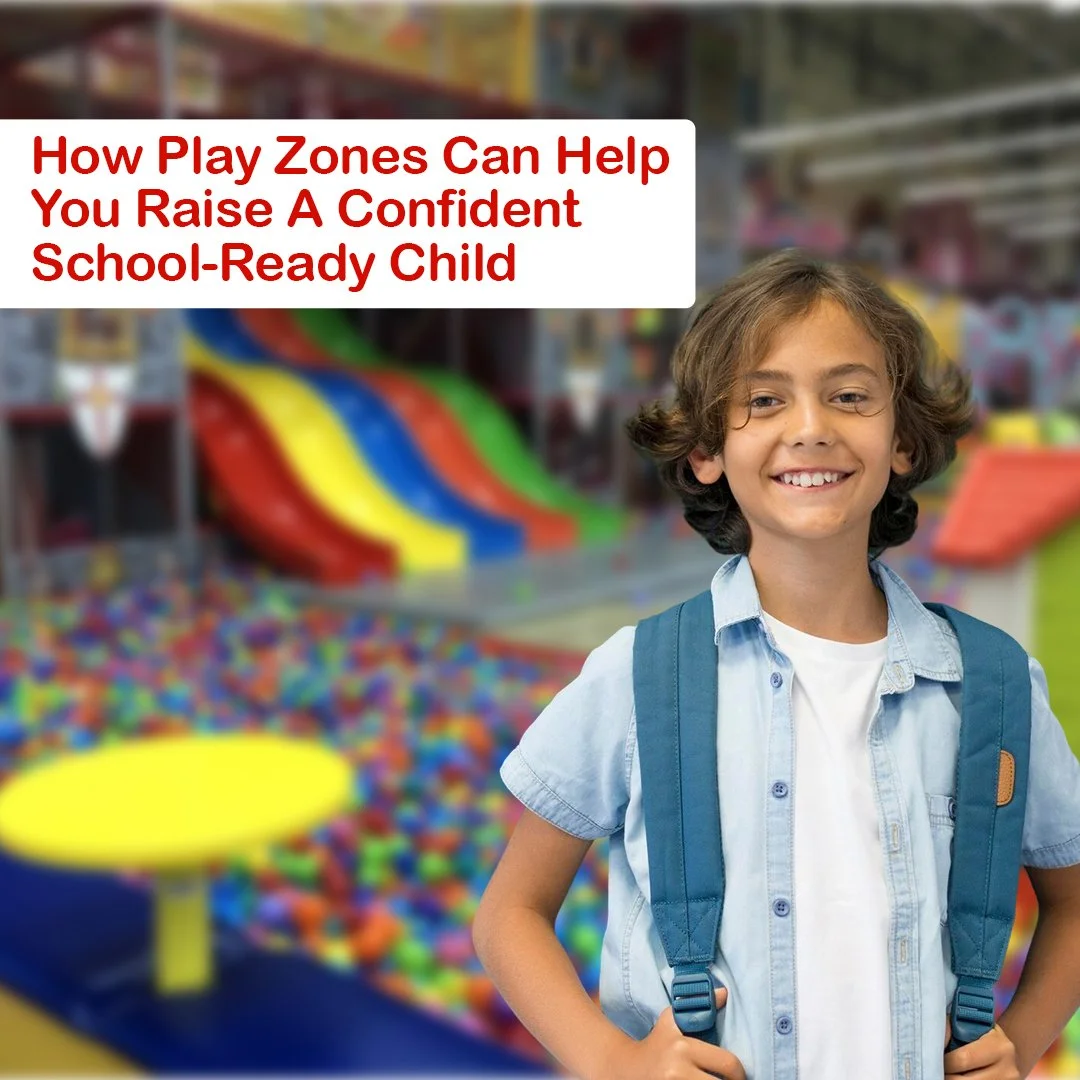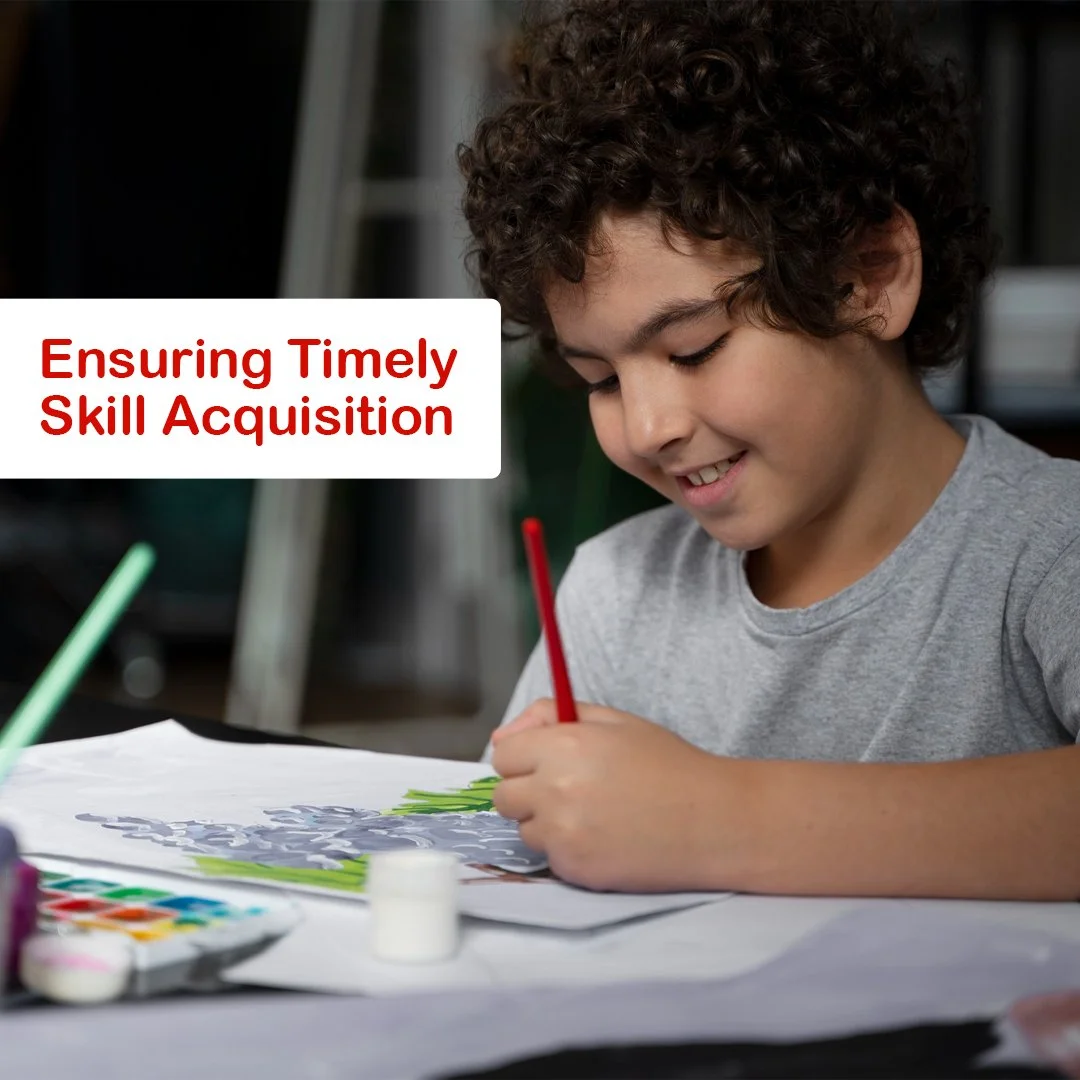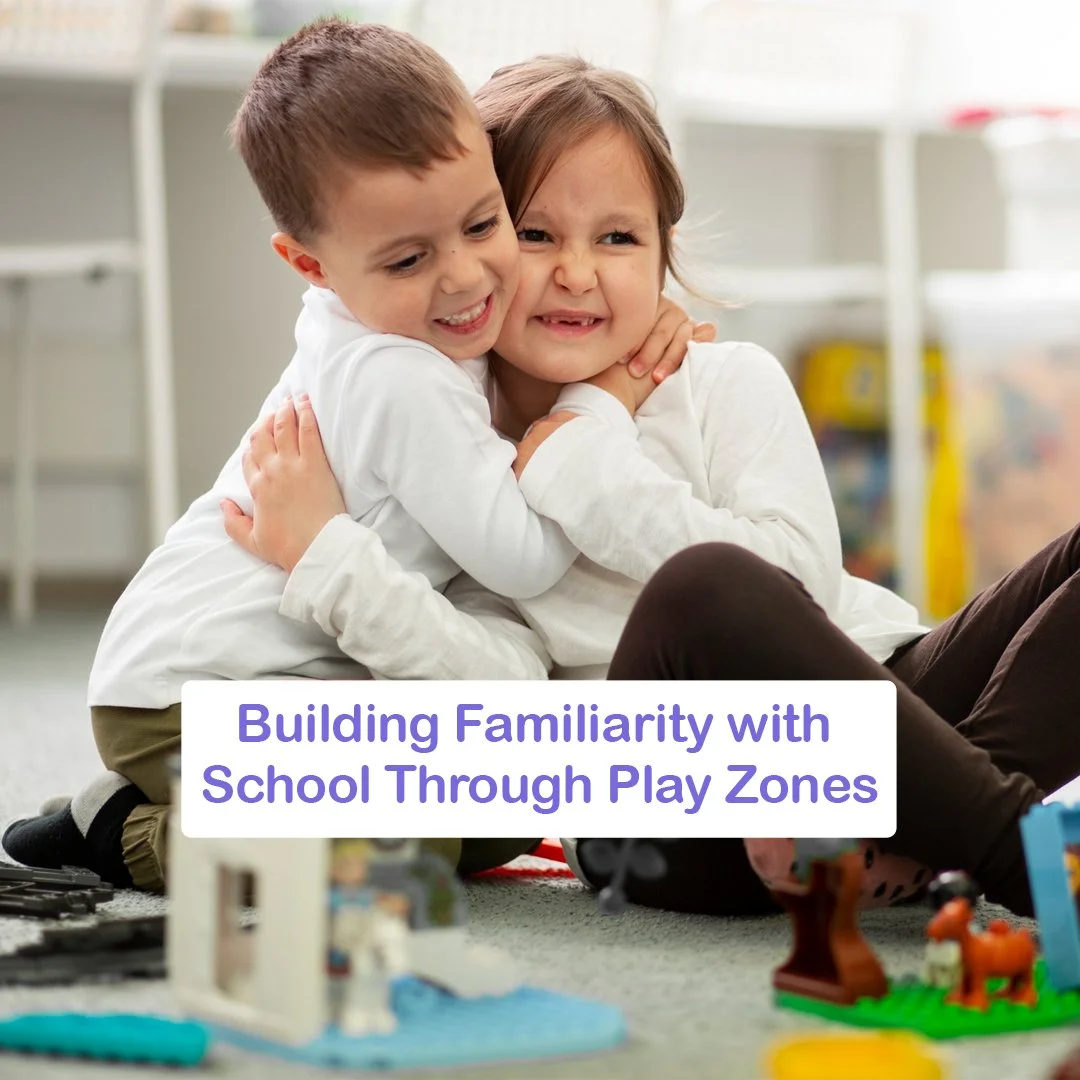How Play Zones Can Help You Raise A Confident School-Ready Child
Imagine watching your child step into school for the first time, brimming with confidence, eager to learn, and fully prepared for the journey ahead. Now, picture the opposite—tears, hesitation, and a struggle to keep up because essential skills weren’t developed early enough. The difference? Preparation. Starting early isn’t just better; it’s essential. It shapes how smoothly your child adapts to school, socially and academically. And the best part? You are not alone; play zones are here to help you.
Table of Contents
This blog is your guide to making school readiness stress-free and cost-effective. From structured routines to play zones that simulate a classroom environment, we’ll explore practical steps that help your child transition with ease. By focusing on the right skills at the right time, you’re not just preparing them for school. You’re giving them a head start in life.
1. Establishing Routines - The First Step to a Smooth School Start
Children thrive on consistency, and routines lay the foundation for a stress-free transition to school. Without structured daily habits, mornings become chaotic, learning feels overwhelming, and adapting to a classroom setting turns into a struggle. But when children follow a set routine from an early age, they develop discipline, time management, and a sense of security skills that make school life easier. More importantly, parents save on last-minute solutions like extra childcare, tutors, or behavioral support.
How Routines Save You Time and Money
A well-planned daily schedule reduces the need for constant supervision. When children know when to wake up, eat, play, and wind down, they become more independent. This means fewer unnecessary expenses on babysitters or after-school programs. Plus, children with structured routines are less likely to develop behavioral issues that might require intervention, saving parents from expensive therapy sessions or additional coaching.
Play Zones Make Routine Building Easier
One of the best ways to introduce routines is through structured play, and play zones offer the perfect environment for this.
These spaces mimic school settings following a schedule, engaging in group activities, and transitioning between tasks.
Regular visits to play zones help children get used to structured playtime, making the shift to school much smoother.
Many UK play zones like - Wonderland Play offer guided sessions, helping children build patience, cooperation, and listening skills naturally.
Once routines are in place, the next step is encouraging independence. Teaching children to manage small tasks on their own boosts their confidence and reduces the need for constant parental intervention. Let’s explore how fostering independence can set them up for success.
2. Encouraging Independence - Raising a Self-Sufficient Child
Every parent wants their child to be confident and capable, but independence doesn’t happen overnight. Children who rely too much on their parents for basic tasks struggle to adapt when school starts.
How Independence Saves You Money
Children who learn basic self-care skills early reduce the need for external help. When they can dress themselves, manage their lunch, pack their school bag, or use the toilet without help, it can make a huge difference. Self-sufficient children adapt quickly to school routines, making them less likely to need additional coaching or special accommodations later.
Play Zones: A Fun Way to Teach Independence
Play zones provide a safe space for children to explore independence.
These environments encourage problem-solving, decision-making, and self-management.
Whether it’s taking turns, managing their belongings, or interacting with peers, children learn to handle tasks without constant parental guidance.
Many UK Soft play sessions even have role-play areas, where children pretend to be shopkeepers, doctors, or chefs practicing real-life responsibilities in a fun and engaging way.
Once children start managing small tasks on their own, the next step is ensuring they learn the right skills at the right time. Let’s explore how early skill development can shape their school experience.
3. Ensuring Timely Skill Acquisition - The Key to Long-Term Savings
Every parent dreams of their child excelling in school, but waiting too long to build essential skills can lead to costly setbacks. When children develop these skills at the right time, they enter school with confidence—ready to grasp new concepts without struggling to keep up.
How Early Skill Development Saves Money
Investing time in early learning reduces future educational expenses. Children who master basic numeracy and literacy before starting school are less likely to need extra tuition later. Studies show that students who struggle with reading or maths in the early years often require intervention programs, which can be both time-consuming and financially draining. By prioritizing skill-building now, parents can avoid unnecessary educational costs in the future.
Play Zones: A Natural Learning Environment
Play zones aren’t just for fun. They’re an interactive way to teach children essential skills.
Many UK play zones like - Soft play zone in newton abbot incorporate educational activities, such as number games, storytelling corners, and problem-solving stations, which naturally introduce children to fundamental concepts.
Through play, children develop cognitive abilities without feeling pressured, making learning an enjoyable experience rather than a chore.
When children acquire the right skills early, they feel more confident in their abilities. This self-assurance helps them navigate school life with ease, reducing stress for both them and their parents. Next, let’s explore how play zones can also familiarise children with a school-like environment, making the transition even smoother.
4. Building Familiarity with School Through Play Zones
Starting school can feel overwhelming for young children, especially if they have never experienced structured environments. The sudden shift from home to a classroom setting can lead to anxiety, difficulty following routines, and resistance to learning. However, introducing children to structured play zones early on can ease this transition, helping them feel comfortable with school-like environments before their first day.
Why Play Zones Are a Smart Investment
Utilizing play zones is a cost-effective way to prepare children for school.
Unlike expensive private preschool programs or tutoring sessions, play zones offer an engaging and affordable way to introduce structure, social interaction, and basic learning activities.
Many UK Tots club incorporate group activities, storytelling sessions, and problem-solving games that mimic a classroom environment, allowing children to adapt naturally.
When children step into a classroom already familiar with structured activities, they adjust more quickly and perform better. Now that we’ve covered how play zones help in school readiness. Let’s explore how teaching fundamental information can help you become smarter parents.
5. Teaching Fundamental Information
A child’s ability to recall basic personal details isn’t just a safety measure. It’s a crucial skill that saves time, reduces stress, and cuts unnecessary costs in the long run.
Why Teaching Personal Information Early Matters
Children who can confidently state their full name, address, and a parent’s contact number are better prepared for real-world situations. Schools and childcare providers often spend time verifying incomplete details or tracking down emergency contacts, which can lead to delays and extra administrative costs. Teaching these basics at home helps streamline such processes, making everything more efficient.
How Play Zones Reinforce This Learning
Indoor activities for children provide an interactive way for children to memorize personal details.
Many play centers incorporate role-playing games where children practice introducing themselves, sharing emergency contact details, or navigating basic directions.
Engaging in such activities helps reinforce their memory in a fun and stress-free environment.
When children know their essential details, they feel more secure in new environments, from school to social settings. This confidence translates into better communication and independence. Now that we’ve covered how early knowledge of fundamental information helps, let’s explore more strategies to ensure a smooth school transition.
6. Communicating Their Needs
Clear communication is more than just a social skill. It’s a financial advantage. When children effectively express their needs, they reduce misunderstandings, prevent unnecessary expenses, and foster a smoother learning environment. Teaching communication skills early helps parents and educators avoid costly interventions while ensuring a child’s emotional and developmental needs are met.
How Strong Communication Skills Reduce Costs
Children who struggle to express their needs often face frustration, which can lead to behavioral issues requiring additional attention from teachers, caregivers, or therapists. Misunderstandings can lead to unnecessary purchases, such as replacing items that a child couldn't explain were simply misplaced. Encouraging self-expression can save both time and money by eliminating these avoidable situations.
How Play Zones Enhance Verbal Expression
Play zones naturally encourage communication as children interact with peers, follow instructions, and express their preferences in a lively environment.
This hands-on approach reinforces verbal skills without extra tutoring costs.
Strong communication skills set the stage for success in school, social settings, and beyond. Children who can clearly express their needs are more independent, reducing the need for constant supervision.
Invest Today, Save Tomorrow
Preparing a child for school doesn’t have to be expensive. We’ve explored how structured routines, early skill development, independence, and strong communication can significantly reduce future costs while ensuring a smoother transition into formal education. Simple, cost-effective strategies—like using play zones for learning, fostering self-sufficiency, and teaching fundamental skills early—can prevent costly interventions down the road.
Every small step you take today shapes your child’s future. Investing time in their growth now saves both money and effort in the long run. Start building these essential skills today and give your child the confidence, independence, and foundation they need to thrive. The best time to prepare them for success is now—take that step and set them up for a brighter, more secure future!
Frequently Asked Question’s
-
Establish daily routines, encourage independence, and engage children in structured play to build essential skills for school.
-
Boost their self-esteem with positive reinforcement, social interaction, and play-based learning in supportive environments.
-
Play enhances cognitive, social, and motor skills while fostering creativity, problem-solving, and emotional resilience.
-
Focus on early literacy, communication skills, self-care habits, and structured play to ease the transition to school.
-
Encourage decision-making, celebrate small achievements, and provide opportunities for interactive learning through play.







